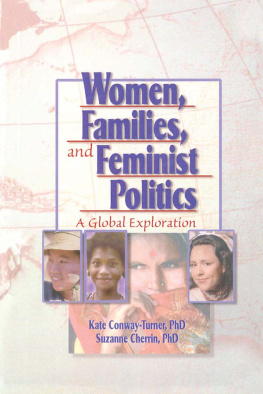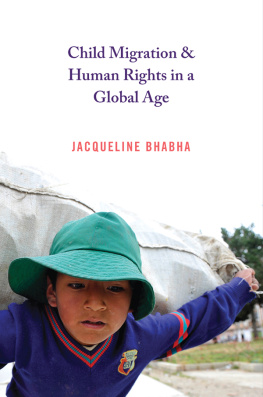Cati Coe is associate professor of anthropology at Rutgers Universtiy. She is the author of Dilemmas of Culture in African Schools: Youth, Nationalism, and the Transformation of Knowledge, also published by the University of Chicago Press.
The University of Chicago Press, Chicago 60637
The University of Chicago Press, Ltd., London
2014 by The University of Chicago
All rights reserved. Published 2014.
Printed in the United States of America
23 22 21 20 19 18 17 16 15 14 1 2 3 4 5
ISBN-13: 978-0-226-07224-1 (cloth)
ISBN-13: 978-0-226-07238-8 (paper)
ISBN-13: 978-0-226-07241-8 (e-book)
DOI: 10.7208/chicago/9780226072418.001.0001
Library of Congress Cataloging-in-Publication Data
Coe, Cati, author.
The scattered family : parenting, African migrants, and global inequality / Cati Coe.
pages cm
Includes bibliographical references and index.
ISBN 978-0-226-07224-1 (cloth : alkaline paper)
ISBN 978-0-226-07238-8 (paperback : alkaline paper)
ISBN 978-0-226-07241-8 (e-book)
1. Foreign workers, GhanaianUnited States. 2. FamiliesGhana. 3. Children of foreign workers. 4. Foreign workers families. 5. TransnationalismSocial aspects. I. Title.
HQ696.8.C64 2014
306.85dc23
2013008861

This paper meets the requirements of ANSI/NISO Z39.48-1992 (Permanence of Paper).
The Scattered Family
Parenting, African Migrants, and Global Inequality
CATI COE
The University of Chicago Press
Chicago and London
CONTENTS
ACKNOWLEDGMENTS
This book has benefited from the support of many people and institutions. The support came in numerous forms: through advice, providing me with a place to stay, trudging with me up and down the hills of Akropong, listening to recordings and transcribing them, reading my work and commenting on it, and giving me the financial resources to make it all happen.
First and foremost, I am so grateful to all my informants and their families in Ghana and the United States for letting me know about their lives and experiences. Two individuals in particular focused my attention on this line of research eight years ago, when I had only a vague notion of what I might be doing. Several Ghanaian churches on the East Coast welcomed me.
Kweku Aryeh, Joe Banson, and Margaret Rose Tettey helped immensely with my research in Akropong, helping me conduct interviews and focus group discussions, come up with questions, and guide the research itself. Kweku Aryeh walked with me for days on end in the hot sun without complaint so that we might make contact with as many households as possible. Through Kwesi Yankahs aid, Rogers Krobea Asante, Bright Nkrumah, and Emmanuel Ofori Amo were stalwarts in the frustrating and slow task of transcribing the many recordings. They helped me realize how much Akuapem people used Asante Twi. Later, Joe Banson and Margaret Rose Tettey helped me translate the more opaque bits of the transcriptions. Without all their efforts, this work could not have been completed. The home of Kwame and Mrs. Adu-Bediako in Akropong provided a calm place for thought and reflection after busy days of interviews and interpretation.
Earlier versions of these chapters were presented at different conferences and workshops, and I am grateful to many colleagues for their thoughts in response and in subsequent conversations: Erdmute Alber, Caroline Bledsoe, Deborah Boehm, Joanna Dreby, Esther Goody, Michelle Gilbert, Valentina Mazzucato, William Murphy, Catrien Notermans, Rachel Reynolds, Carola Surez-Orozco, Sjaak van der Geest, and Ann Whitehead.
Emmanuel Ayesu, Carol Brandt, Vibiana Bowman Cvetokovic, Mary Ebeling, Inma Garcia-Sanchez, Kathy Howard, and Rachel Reynolds gave me feedback and encouragement on initial drafts of this manuscript. Jon Landau, an immigration lawyer in Philadelphia, made sure that my presentation of US immigration law was accurate. The most extensive commentary on the manuscript came from my mother and father, Robert P. Coe and Jane Meleney Coe, who know Ghana well from living there in the late 1960s and early 1980s, and Cheryl Shipman, who approached my writing with a keen eye for inconsistency and confusion. Three anonymous reviewers provided extremely helpful and thoughtful comments. To all of you, I am thankful for your suggestions regarding theoretical clarity, organization, and gaps in information.
This research was financially supported by numerous organizations: from the first by my home institution of Rutgers University, through the Research Council and the Childhood Studies Center, which paid for short trips to Ghana, Basel, and Northwestern University, where the Polly Hill Papers are located. Later stages of research were supported by the National Science Foundation and the Wenner-Gren Foundation for Anthropological Research, which allowed me to live in Ghana for five months in 2008 and for the follow-up fieldwork in 2009.
From the bottom of my heart, I am grateful to all of you for the contribution you have made to this work. May I be able to support you in some way in the future.
INTRODUCTION
A Scattering of Families
Port Authority bus terminal in New York City can be a dark and scary place, but it can also be exciting, as it is a crossroads of people with different pasts and trajectories. As I was standing in line for a long-distance bus one summer, a striking middle-aged woman in an outfit made of African cloth stepped into line behind me. Because I had spent time in Ghana, a small country in West Africa, I was intrigued. I greeted her and learned, to my delight, that she was from Ghana. We chatted while we waited for the bus and sat together after it arrived, glad for each others company on the long ride.
Vivacious, outgoing, and a lively storyteller, Irene told me about her life during our bus ride that afternoon and evening. I learned that she had lived in the United States for over twenty years and was a US citizen. She had worked for the past eight years as a live-in home health aide, a job in which she lived with frail elderly people in their homes for days or months at a time, helping them with cooking, grocery shopping, clothes washing, and other housework until they recovered or needed more extensive care. Irene had just returned from a trip to Ghana and was now on her way to a job in Massachusetts. Although she would have liked to recuperate a little bit more after her trip, she was concerned that if she did not take this position, the agency that had called her would not contact her again.areas five or six hours away from her home in central New Jersey. Because she did not know if she would be able to buy ingredients for the Ghanaian dishes she liked or international phone cards in the neighborhood to which she was traveling, she had brought some of these items in her bags.
One of the reasons Irene brought phone cards was because in the spring she had given birth to a baby boy. After recovering for a short time from the birth, she spent nine weeks in Ghana with her family. When she came back to the United States, she left her baby behind with her parents, who were also looking after her two older children, a boy of thirteen and a girl of six, also born in the United States. She told me in a later conversation:
As much as it is hard, but at times it is the best way because you know they are with family, and secondly, they will be well taken care of, and you will also get the chance to go to work here and come back with the mind, that, Okay, I dont have to worry about how my baby was taken care of.




 This paper meets the requirements of ANSI/NISO Z39.48-1992 (Permanence of Paper).
This paper meets the requirements of ANSI/NISO Z39.48-1992 (Permanence of Paper).